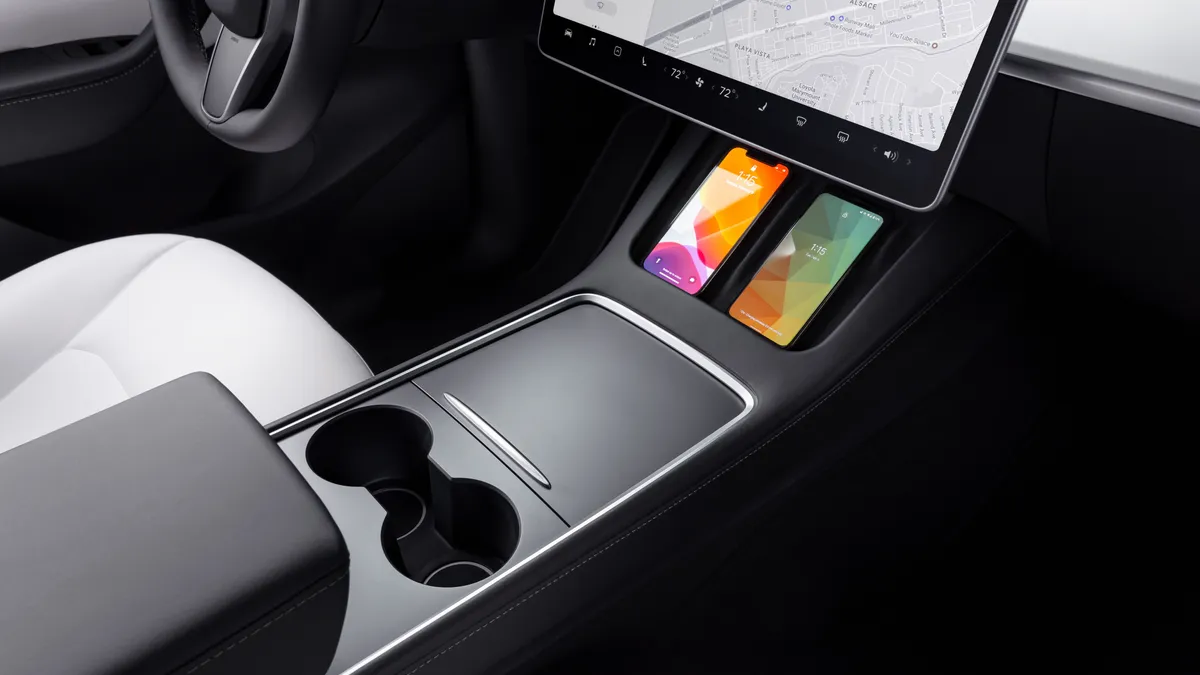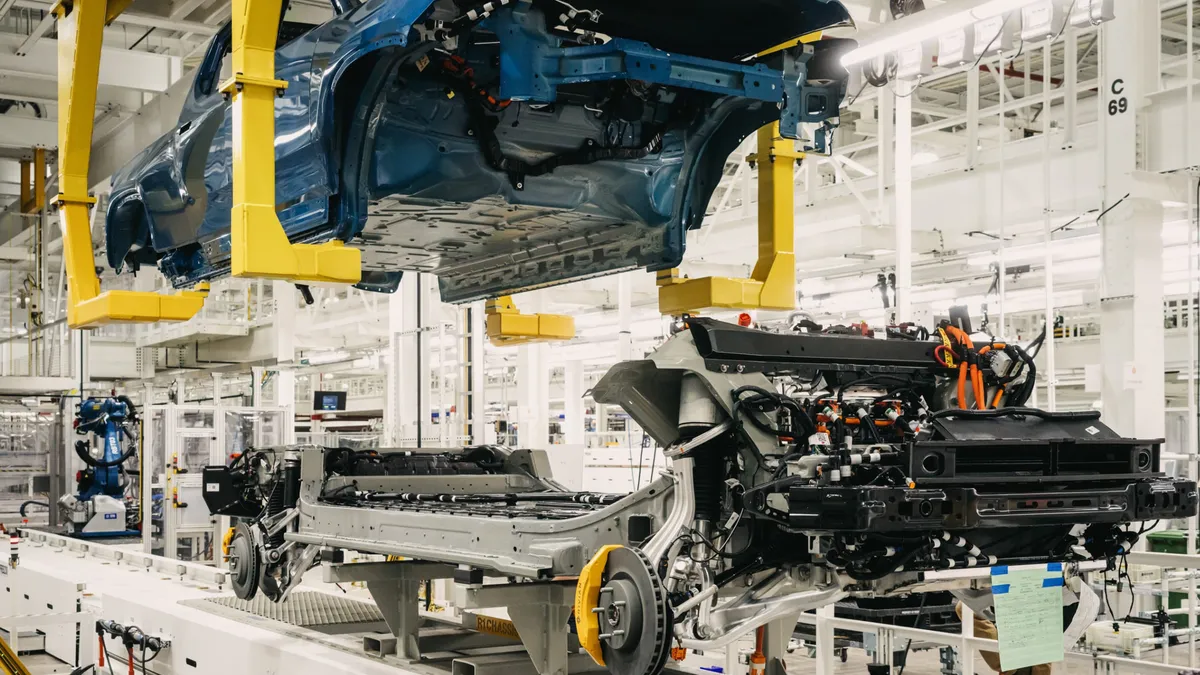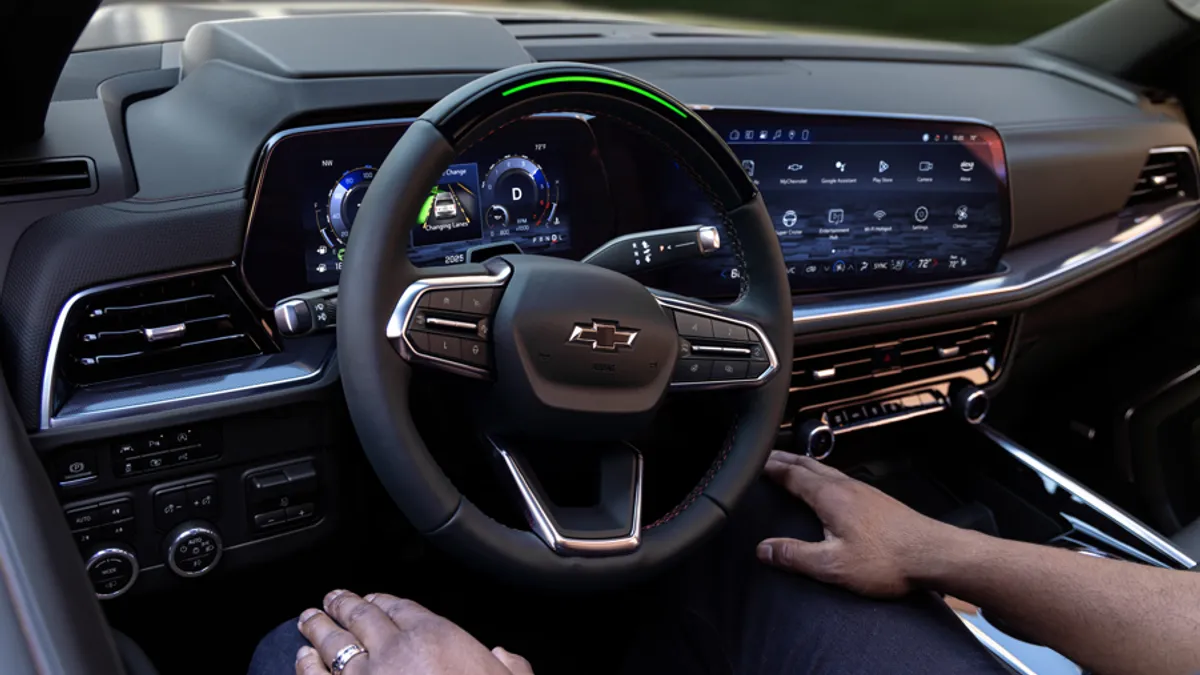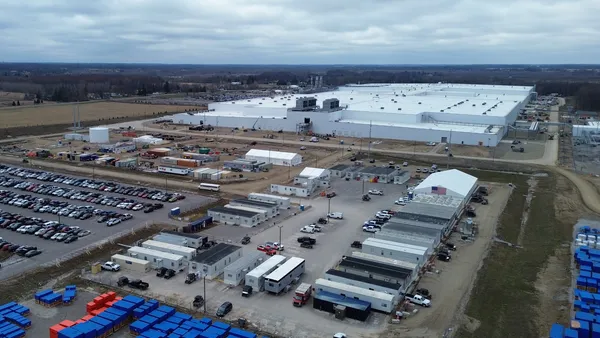Dive Brief:
- The 37th J.D. Power Initial Quality Study shows that new vehicles packed with advanced technology are increasing driver complaints, according to a press release Thursday.
- The survey results, based on responses from 93,380 owners and leaseholders, show that the number of problems per 100 vehicles rose to 30 PP100 over the past two years, a 67% jump from 18 PP100 in 2022.
- For 2023, the industry average was 192 PP100 vehicles, a record high in the 37 years J.D. Power has published the survey.
Dive Insight:
The problems range from malfunctioning driver assist systems, infotainment systems, poor-sounding horns and cup holders that don’t serve their purpose, according to J.D. Power.
“The automotive industry is facing a wide range of quality problems, a phenomenon not seen in the 37-year history of the IQS,” said Frank Hanley, senior director of auto benchmarking at J.D. Power, in a press release.
Drivers participated in the 223-question survey in February and March. The questions covered nine vehicle categories: infotainment, features, controls and displays, exterior, interior, driver assist systems, powertrains, seats and overall driving experience.
J.D. Power’s annual study aims to help automakers identify problems with their models. The report found that problems with driving experience were flat year-over-year, but quality declined in all other vehicle categories.
The largest increase in reported problems came from the vehicle controls and displays category, with 3.2 PP100, followed by infotainment, with 2.3 PP100.
For EV drivers, exterior door handles were the most problematic, with seven of the 10 models with door handle issues being battery electric vehicles, according to J.D. Power.
Drivers also reported more issues with advanced driver assist systems, which increased to 1.8 PP100 year-over-year. Lane departure warning and lane-keeping assistance systems were the most problematic in the driver assist category, with 7.2 PP100, followed by automatic emergency braking systems, with 5.0 PP100.
In general, EVs have numerous problems. Although Tesla, Lucid and Rivian vehicles are not officially part of the survey as these companies do not grant J.D. Power permission to survey owners in some states, the report calculated a score based on a sample of surveys from owners in other states.
Tesla’s calculated score was 257 PP100, an increase of 31 PP100 year-over-year. As a result, the automaker ranked second to last in J.D. Power’s brand ranking. Tesla's rival Lucid Motors received a worse score of 340 PP100, while Rivian’s was 282 PP100. Although Lucid and Rivian had more reported problems, they were excluded from the brand rankings because they did not meet J.D. Power’s ranking criteria.
Another problem spot for automakers is wireless charging for cell phones. Drivers reported several problems to J.D. Power, including poor charging pad location, phones overheating and intermittent charging loss.
“This is the area where manufacturers really have the opportunity to delight customers with this convenience, but instead are creating a problem for them,” Hanley said in the press release.
Still, driving a new car has its upsides. Automakers’ smartphone apps are becoming increasingly popular, especially for EVs. BEV owners use their app at least 68% of the time to monitor vehicle charging and view their range. However, J.D. Power noted that because of the unique features of EVs, drivers experienced more problems when using an EV’s companion app versus those for internal combustion engine vehicles.
General Motors, Hyundai and Toyota were the three automakers that received the most model-level awards for quality. Topping the brand rankings was Stellantis, with its Dodge, Ram and Alfa Romeo brands taking the top three spots.












